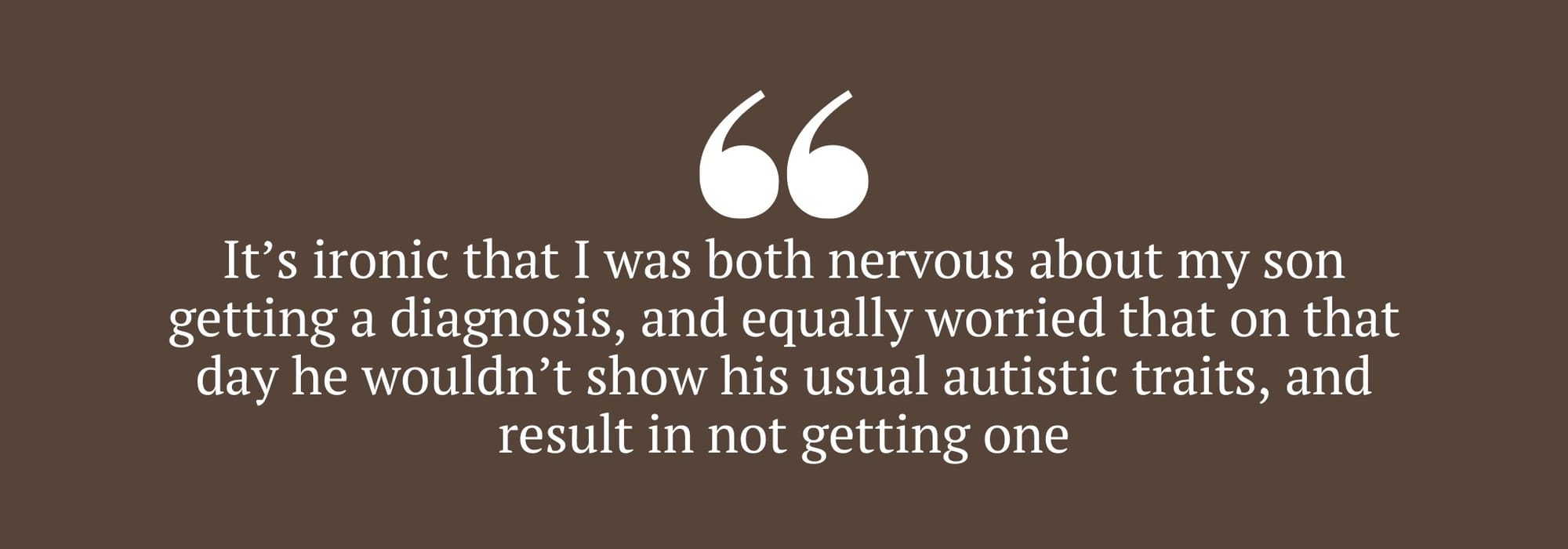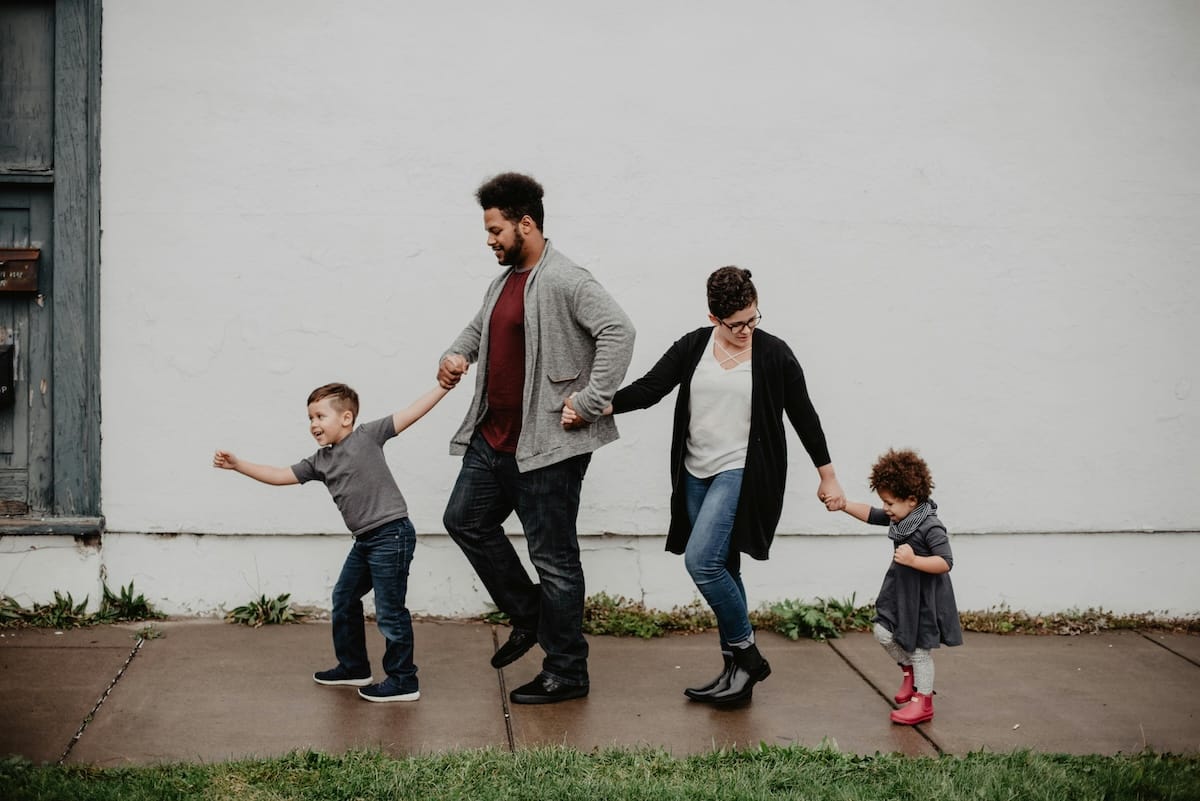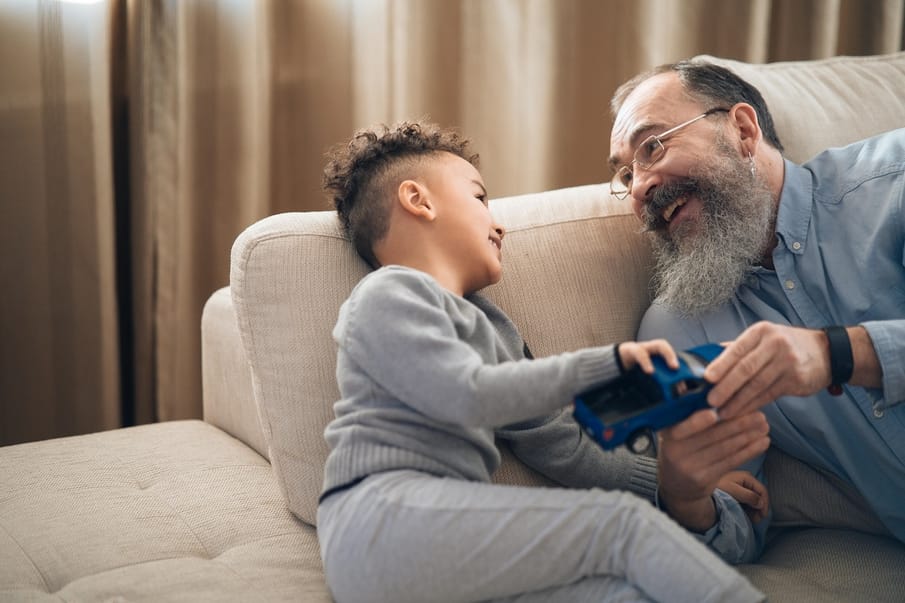One in 100 children in the UK has an autism diagnosis, and while society’s general understanding of neurodivergence has improved, the support some receive during and post-diagnosis hasn’t. Jenna Farmer, whose son is autistic, shares how to navigate the diagnosis journey and beyond
For many parents, there’s a time when they instinctively know their child is autistic. It’s not about a checklist or criteria, more of a gut feeling. This realisation may happen early in their child’s life – often between 12 and 24 months – but for others, it can be something that pieces together more slowly as their child develops. However you begin your child’s autism diagnosis journey, the reality is it’s often not a straightforward one. So, as someone who has been there, let’s talk about how you can navigate it.
The waiting game
Even if you’re certain that your child is on the autism spectrum, taking those steps to get an official diagnosis (and opening yourself up to paperwork, appointments, and assessments) can be really nerve-racking. When you’ve finally plucked up the courage to begin, it can be disheartening to realise that a waitlist halts you in your tracks.
In fact, recent research in Lancashire and South Cumbria suggests that wait times can be up to two years in certain areas of the UK due to the number of people waiting, with the latest NHS data suggesting that this has increased by 47% in just one year.
After waiting more than two years myself, I understand how frustrating this can be, but it’s important to realise your journey doesn’t have to start after the assessment. You can focus on supporting your child, rather than worrying about the diagnosis, while you wait.
“It is common for parents not to want to label the child until a professional assessment has taken place,” says parenting expert Lauren O’Carroll, of Positively Parenting, who specialises in supporting neurodivergent families. “There is no wrong or right here, but the critical thing is that you don’t need a label to receive support.
“Regardless of diagnosis, I always encourage families to look for the underlying need behind any challenging behaviour. You don’t need a diagnosis to identify that a child typically has meltdowns in school when the classroom becomes noisier, or when the sun gets in their eyes.”
For a while, I too felt as if I couldn’t say my child was autistic without official confirmation, but needed in the moment, rather than waiting for the paperwork to prove what I already knew.
A big misconception is that you can’t access support without a diagnosis, but this isn’t true. For example, you can apply for Disability Living Allowance (or DLA), to get funding for the extra things you need to put in place on this journey. In our case, this was for speech therapy, visual aids, and sensory toys, but this can be used for whatever extra help and care your child needs.
While waiting, one of the most helpful things I did was learn from other parents who had been on the journey, so I could understand more about autism and prepare for the assessment process. There are so many great books out there, but my favourite was Autism: How to Raise a Happy Autistic Child by Jessie Hewitson.
The autism assessment process
When you’ve finally made your way to the top of the list, you should feel elated – but I also felt equally nervous. The diagnostic process will usually involve multiple appointments with an assessor, who may come to your home or conduct the assessment in the hospital. In my case, we had two home visits and one Zoom call (which was a relief as I didn’t need to worry about taking my child to an unfamiliar setting), but feel free to ask about your own circumstances to try to get as much information as you can about the process and what to expect.

It’s important not to focus on the ‘right’ way to feel heading into the assessment. It’s ironic that I was both nervous about my son getting a diagnosis, and equally worried that on that day he wouldn’t show his usual autistic traits, and result in not getting one.
According to parenting expert Lauren O’Carroll, this worry is common. “Parents have usually come around to the potential of their child being autistic. At the point of assessment, the likely prevailing worry is, ‘If my child is not diagnosed, then what do we do?’ Take it one day at a time, and remember assessors will have the experience to guide things. Simply try to focus on making your child as supported and comfortable as possible.”
Feeling stuck, these are great places to start!
. National Autistic Society: autism.org.uk
. Ambitious About Autism: ambitiousaboutautism.org.uk
. Find local events for those with autism: autismcentral.org.uk/events
Navigating life post-diagnosis
It’s common to think things will drastically change after you receive a diagnosis, but it often stays the same. After all, your child and their needs haven’t changed, the process is all about how you (and others) can understand and support them better.
My biggest piece of advice is not to question how you feel when you hear the words ‘they’re autistic’. For some, the reaction may be pure relief, while for others, there may be feelings of worry, uncertainty, and even guilt (e.g. for not noticing it sooner). Sit with it – all responses are valid, and you’re not a bad parent for having mixed emotions.
The support networks you’re offered after diagnosis can also vary. While I know many parents who received very little in the way of post-diagnosis support, I myself was given follow-up calls and invitations to parent and expert meetings. However, either way, know that there is help out there, you may just need to go looking for it.
“Organisations like the National Autistic Society and Ambitious about Autism have fantastic online resources,” says Lauren. “Community can also be extremely valuable, and I would encourage parents to find other parents of children with autism to connect with, as parenting a child with additional needs can feel pretty lonely at times. Similarly, it can help the child to find other people who experience the world the same way they do to validate their experiences.”

This doesn’t have to be in-person meetings as social media can be a great support network, and I personally found TikTok really useful in the beginning as a way to connect with other parents who were in the same boat.
Each child with autism is different, and there’s no one way to navigate the journey of getting a diagnosis. Just know that, while at times, it might feel a little scary and isolating, there are many people going through the same thing, and that you’re not alone. And above all, you’re working through this as best you can to support your child, so whether you feel frustrated by the wait or unsure what to expect, know that you’re doing this for them – it will be worth it in the end.


Comments